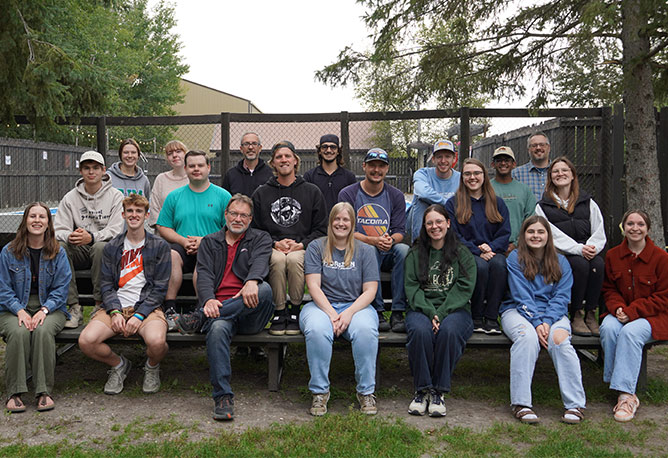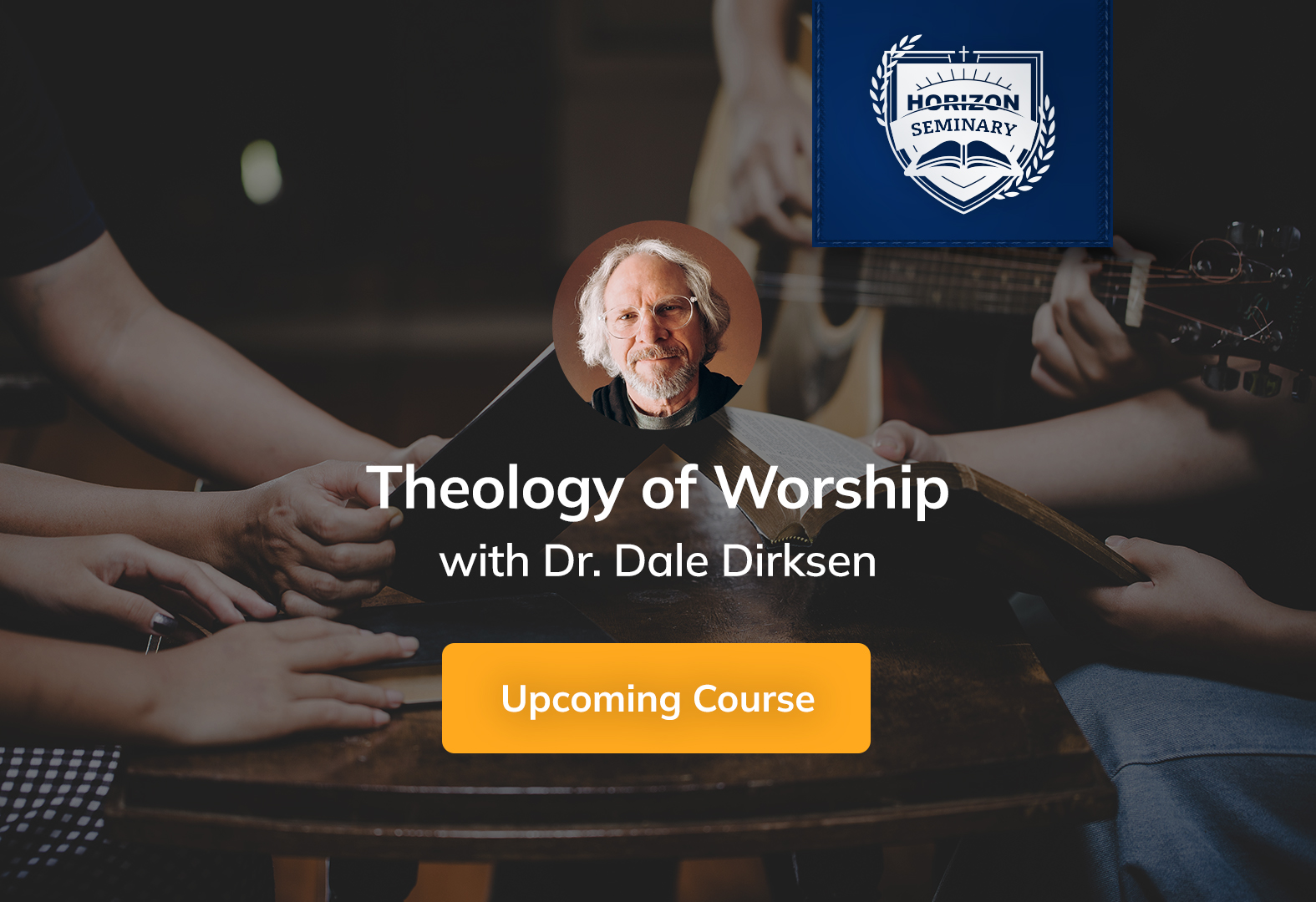President Dr. Jeromey Martini examines the biblical teaching that Jesus is God and how this shaped early Christians. In the next article, explore what difference this should make for us, today. (Original message delivered at Lloydminster Gospel Fellowship Church)
Three 1’s and a 2
“If I want to find out if Jesus is God in the Bible, where do I look?” Here is a quick cheat-sheet.
The three 1’s are John 1, Colossians 1, and Hebrews 1. The 2 is Phillipians 2.
“In the beginning was the Word, and the Word was with God, and the Word was God. He with God in the beginning. Through him all things were made; without him nothing was made that has been made.”
John 1:1-3
Here we start with the idea that Jesus was the Word, the Word was with God, the Word was God. John just says it outright – through the Word, through Jesus, everything in creation is made. He’s above it all; everything is made through that act. Now even skeptics will acknowledge that John is saying Jesus is God. Then they may try to say, “well that all came later, they made that up afterwards,” but at least they’ll acknowledge it’s there. So that’s our first “1”.
Here’s our second “1”. Colossians is written a lot earlier than John, and I’m taking a piece at the beginning of it where it talks like John about Jesus.
“The Son is the image of the invisible God, the firstborn over all creation. For in him all things were created, things in heaven and on earth, visible and invisible, whether thrones or powers or rulers or authorities; all things have been created through him and for him. He is before all things, and in him all things hold together.”
Colossians 1:15-17
Jesus is before everything. So here’s this passage that the earliest followers of Jesus were familiar with – they said, “yes, Jesus is above all and gave him the characteristics of God, the Creator.” Okay, one more “1”.
“In the past God spoke to our ancestors through the prophets at many times and in various ways, but in these last days he has spoken to us by his Son, whom he appointed heir of all things, and through whom also he made the universe. The Son is the radiance of God’s glory and the exact representation of his being, sustaining all things by his powerful word.”
Hebrews 1:1-3
We have here a third passage that talks about Jesus as existing before creation, through whom all creation was made, and sustaining all things. This is not just a carpenter’s kid in Galilee – there’s a lot more going on here.
Now what is interesting about these three passages is that they were actually the early version of “Hillsong worship,” they were early Christian hymns. They were a kind of poetry.
Most early followers of Jesus couldn’t read so they communicated and remembered things often by singing! This showed up in early Christian worship, and these three passages were like worship songs talking about Jesus.
This is an important point because skeptics will often look at things and say, “Oh, well, this point is different than that point, and they didn’t all come together, and this all was later than everybody thinks…” But what is crucial to recognize is that this isn’t just about how they articulated a doctrine, this is how they practiced what they believed.
The practice came first, like the blind man that Jesus healed in John. The blind man gets healed and the enemies of Jesus go after him, asking “who did this and who is this guy?” and the blind man says, “You know what, I don’t know who he is, I can’t explain everything about him, but I was blind and now I see, and . . . I’m in!”
The early Christians knew, “Hey, this is bigger than I can imagine,” and after this revelation, they had to figure out how to make sense of it, and how to articulate it.
So, it’s kind of backwards. Should they try to discover the finished point of articulating their understanding of what’s happened before they embrace it? No. They put this stuff into practice.
The earliest followers of Jesus were worshipping Jesus even if they didn’t fully grasp what that meant.
The “2”
This last one, our “2,” from Philippians chapter 2 is also a hymn or some kind of a song. Here, Paul is talking about Jesus and then he quotes this worship song:
“Who being in the very nature of God did not consider equality with God something to be exploited. Rather, he made himself nothing by taking the very nature of a slave, being made in human likeness. And being found in appearance as a man, he humbled himself by becoming obedient to death – even death on a cross!”
Philippians 2:6-8
This reads almost like a story, like a movie script where the hero starts and everything’s good, and then bad stuff happens. And more bad stuff, and it gets to the worst point, and then there’s going to be a turnaround and a big crescendo up the other side.
And that’s what happens here. He experiences death on a cross and THEN… “Therefore God exalted him to the highest place and gave him the name that is above every name, that at the name of Jesus every knee should bow, in heaven and on earth and under the earth, and every tongue acknowledge that Jesus Christ is Lord, to the glory of God the Father.”
What’s interesting about this last hymn, this last chorus, is that the last two verses, 10 and 11, are taken from the Old Testament, the book of Isaiah, chapter 45. If you compare Isaiah and Philippians, you see that what this hymn is doing is replacing the name of God, Yahweh, with Jesus, which is remarkable.
If you read Isaiah chapter 45, God says again and again, “I am God and there is no other God but me… there IS no other God but me.. there is one God and I AM HE.” He says it again and again and again and again. He’s combating any view that there could be more than one God.
This is a major text for Jews living in all the societies at that time. They lived in Babylon and in Rome. In Jesus’ and Paul’s day, living in occupied Rome meant everybody had idols, everybody had gods. There was no shortage of gods. And if you needed a new god, no problem. If you had a god from your own culture, by all means, “bring it on over! We’re happy to include that God.”
No shortage of gods, except for the Jews, who said there was only one God and we must reject all these other ones. This passage is one of the major places they pointed to. Then along come these followers of Jesus, saying, “Yes, only one God, and we worship that one God, through Jesus.” They take this passage and they replace God’s name with Jesus’ name. That is remarkable!
This is enough to say that the early followers of Jesus did believe that Jesus is God.
Embracing the Mystery
The earliest believers worshipped Jesus as God, even if they didn’t fully grasp what it all meant. We still wrestle with how to make sense of this, but even when they couldn’t totally understand it, they did it. Jesus was in their worship; they worshipped Jesus, as God.
If you want to learn more about this, I recommend Simply Jesus by N.T. Wright. It is an accessible book, written for people to “get” this. Wright is a prominent scholar and it’s a great place to start if you want to dig deeper into this.
The Real Question
We can say that this is a belief we have as followers of Jesus but, to be crass about it, WHO CARES? What difference does that make?
 Taken from Jeromey Martini’s message presented at Lloydminister Gospel Fellowship, 2021
Taken from Jeromey Martini’s message presented at Lloydminister Gospel Fellowship, 2021
Transcribed by Cheryl Ashton, Edited by Jayna Snider
Want more?
Sign up with your email address to receive the latest news and updates, event reminders, or encouraging articles. Simply check the boxes below to let us know what you are interested in.












